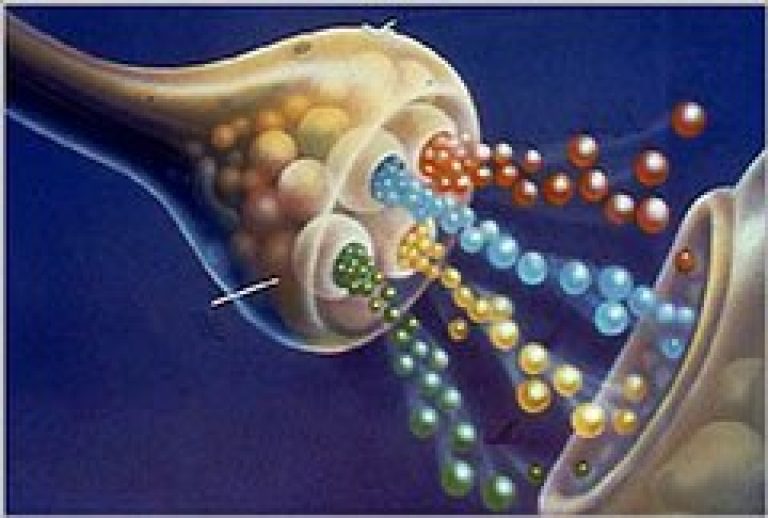Using Melatonin for Anxiety – Could It Work for You?

When most people think of melatonin, they think of a sleep supplement. While it does help with a range of sleep disturbances, emerging evidence suggests that we should also consider melatonin for anxiety.
According to the National Institute of Mental Health, 31.1% of adults in the United States will experience an anxiety disorder at some point in their life. This almost unbelievable percentage includes Generalized Anxiety Disorder (GAD), Post-Traumatic Stress Disorder (PTSD), Social Anxiety Disorder, and other anxiety diagnoses.
Whether someone is just experiencing some anxiety symptoms or has a diagnosed anxiety disorder, melatonin may be able to help. It’s true that melatonin is usually used as a sleep aid, but new research shows it can be effective as a supplement to reduce anxiety as well. If you want to lead a more relaxing life with the help of a natural supplement, keep reading!
What is Melatonin?

Secreted by the pineal gland as a response to darkness, melatonin is a naturally occurring hormone in the human body. Melatonin helps to regulate our circadian rhythms (internal clocks) and oversee our sleep and wake cycles. After being released, melatonin affects several parts of our brain, causing the body and the mind to wind down and prepare for sleep.
Because the pineal gland gets triggered to release melatonin by darkness, exposure to light inhibits its release and reduces circulating melatonin levels. This is why so many experts suggest putting away electronics and turning off lights 30 minutes before bed, and also why you may feel more tired during the shorter days of the winter months.
Even though this sleep hormone is naturally occurring, many may have problems producing sufficient melatonin or may suffer from one of several sleep disorders where having more melatonin could be helpful. In these cases, man made melatonin supplements are a great alternative, helping with occasional insomnia and other sleep disturbances such as jet lag or delayed sleep phase syndrome (DSPS).
While historically it has always been associated with sleep, melatonin can be more than just a sleep aid. Using melatonin to reduce certain forms of anxiety may become more popular in the future as further research comes out about its positive effects. First, it’s important to understand how our mental health is affected by our quality of sleep.
How Sleep Affects Mental Health
More than 90% of patients with clinical depression experience insomnia, and for those with anxiety disorders (including generalized anxiety disorder, panic disorder, and separation anxiety disorder), insomnia is incredibly common. The treatment of insomnia and other sleep disorders can even help prevent and treat psychosis!
The powerful relationship between sleep problems and mental health disorders is clear. Poor sleep often worsens mental health issues. It also impairs cognitive function, which makes finding solutions to issues like depression and anxiety more challenging.
Sleeping is very important not just to our physical health, but to our mental health. During the nighttime hours when the body rests, it undergoes several important processes such as wound healing, cell renewal, and memory consolidation. These processes are important not just for the physical body, but for the health and function of your brain as well.

If you don’t get enough sleep, you may notice several negative side effects. The type and intensity of these side effects depends on how long you’ve been experiencing poor sleep quality, and the extent of your sleep deprivation.
Side Effects of Short Term Sleep Issues
There’s no avoiding a night or two of bad sleep every now and then, but even short term sleep deprivation can have side effects:
- Can lead to accidents or injuries
- Forgetfulness
- Reduced cognitive functioning
- Can worsen the symptoms of anxiety and depression
Side Effects of Long Term Sleep Issues
For those that consistently get too little sleep, there may be even more serious repercussions, including:
- Deteriorated mental health
- Impaired Judgement
- Lower libido
- Reduced cognitive functioning
- Physical health issues
Using Melatonin to Reduce Anxiety

What the Research Says
After seeing just how fundamental good sleep is to mental health, and health in general, it becomes clear that there is a logical reason to consider melatonin for anxiety. Getting good sleep can reduce stress throughout the day, ensure that your brain is functioning properly, and protect your mental health from the physiological issues that lack of sleep can cause.
In terms of specifically reducing anxiety symptoms, a study published in 2017 noted that melatonin is a promising and “safe intervention to be tested for potentially beneficial effects against depressive symptoms [and] anxiety.” Experts are still not entirely certain if the mental health benefits that melatonin appears to provide are solely due to the improvement in sleep that many see after using this hormone, or if there are independent factors at work.
In another study, melatonin’s effect on pre-surgery anxiety was tested by using a placebo as a control variable. In this study, melatonin was shown to reduce preoperative anxiety when compared to the placebo, and the effect of melatonin might even match midazolam, the drug that’s usually administered to reduce preoperative anxiety.
The Best Way to Use It
Taking melatonin orally in a pill form is by far the most common method, but it’s also quite popular to take it sublingually as a tablet that dissolves under the tongue. Because it is a more consistent way of getting the supplement into the bloodstream, the sublingual form of melatonin is generally favored by clinical studies.
So, when, in what form, and how much melatonin should you take? That depends on several factors. In the preoperative setting, the patients were given 3 to 14 milligrams, and the doses were administered about an hour to an hour and a half before surgery. For relief from symptoms associated with mental illness and from sleep disorders themselves, the recommended dosage is usually lower, and time recommendations vary from 30 minutes to 2 hours before going to bed.
For those using melatonin to reduce anxiety and improve sleep, experts recommend taking between 0.5 mg to 3 mg, as this is usually enough to promote better sleep. When it comes to melatonin, taking more doesn’t mean it will work better. In fact, it’s a good idea to avoid taking too much melatonin, as it can increase daytime sleepiness and affect focus and concentration.
Risks and Side Effects of Melatonin

Despite the fact that your body creates and releases melatonin naturally, there’s still a possibility of adverse side effects. Since the Food and Drug Administration (FDA) classifies melatonin as a dietary supplement, there aren’t as many rules and regulations regarding the composition or purity of many melatonin supplements. This means it’s important to keep the risk factors in mind and be aware of the way you may respond to melatonin.
Side Effects
The most common side effects of melatonin include:
- Headache
- Dizziness
- Nausea
- Drowsiness
While some more rare side effects include:
- Confusion
- Low blood pressure
- Irritability
- Abdominal cramps
- Short term effects on mood
If you experience intense or prolonged symptoms, discontinue your use and talk to a medical professional about whether melatonin treatment is right for you.
Risks
The risks of using melatonin include potentially dangerous drug interactions and pre-existing conditions. Talk to a medical professional before taking melatonin in the following cases.
If you are taking:
- Anticoagulants (could increase bleeding risk)
- Blood pressure drugs
- Central Nervous System depressants (could increase sedative effect)
- Seizure threshold lowering drugs (could increase the risk of seizures)
- Anticonvulsants (could inhibit the effects of this medication)
- And more
If you have any of the following conditions:
- Autoimmune disorder
- Pregnancy
- Diabetes
- High blood pressure
- Seizure disorder
While you still may be able to take melatonin in many of these cases, it’s best to talk to your doctor beforehand to ensure your safety.
Should You Try a Melatonin Supplement for Anxiety?
This article has a lot of information to consider, so focusing on the main points can help you decide if using melatonin for anxiety is right for you.
Melatonin is generally incredibly safe and is a hormone that your brain already makes and your body is already used to. Using melatonin supplements has been shown to help improve your sleep/wake cycles and get you to sleep faster if you suffer from occasional insomnia, jet lag, or DSPS.
When you get more sleep, your cognitive functioning improves and you’re less likely to suffer from the symptoms of anxiety that can result from sleep deprivation. If the possibility of being less anxious isn’t enough, getting proper sleep also helps you avoid several other negative physical and mental side effects of sleep deprivation.
If research continues to support the effectiveness of melatonin as an anxiety reducer in pre-surgery settings, more addictive and side-effect causing medications like midazolam may be used less, which would benefit everyone.
If you take a medication that might interact negatively with melatonin, or if you have other risk factors, be sure to talk to a medical professional to figure out if using melatonin as a supplement is right for you.

It’s also important to remember that melatonin is usually only recommended for occasional or short term use. If you use it continuously over a long period of time, not only could you be masking other problems that need addressing like hormone imbalances or depression, but your body may also develop a reliance on the supplement in order to produce the proper amount of melatonin. This is why occasional use is recommended, and why you should talk to your doctor about any questions you may have.
Getting the proper amount of sleep is one of the main building blocks to good physical and mental health. Already widely accepted as a safe and non-addictive sleep aid, it’s time to recognize melatonin for its anxiety-reducing abilities as well. If you’re ready to get some sleep and say goodbye to unnecessary anxiety, give melatonin a try and see what it can do for you!





